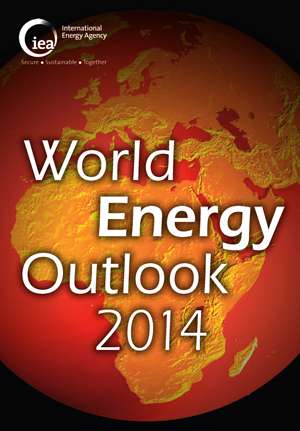November 17, 2014 weblog
Turmoil, conflicts cloud global energy future

The International Energy Agency's (IEA) World Energy Outlook 2014, with all its numbers, technical details and geographic breakdowns on oil, gas, coal, and renewables, makes a fundamental point. Advances in technology and efficiency justify optimism, but signs of stress on the energy system's future will not just go away on their own; sustained political efforts are essential if we hope to change energy trends for the better.
The report's executive summary stated that "global energy trends are not easily changed and worries over the security and sustainability of energy supply will not resolve themselves." Actions from stakeholders are needed. As for bickering and bloodshed, "Turmoil in parts of the Middle East – which remains the only large source of low-cost oil – has rarely been greater since the oil shocks in the 1970s. Conflict between Russia and Ukraine has reignited concerns about gas security." Nuclear power? An uncertain future. Electricity? Still inaccessible to many people, including two out of every three people in sub-Saharan Africa. An estimated 620 million people in sub-Saharan Africa do not have access to electricity, a severe constraint on economic and social development. Interestingly, the region is nonetheless "rich in energy resources, but they are largely undeveloped. Almost 30 percent of global oil and gas discoveries made over the last five years were in the region, and it is also endowed with huge renewable energy resources, especially solar and hydro, as well as wind and geothermal."
As for oil consumption, a landmark is to be reached in the early 2030s, when China becomes the largest oil-consuming country. In the United States, oil use will fall back to levels not seen for decades. Demand for natural gas grows by more than half, the fastest rate among the fossil fuels, and increasingly flexible global trade in liquefied natural gas (LNG) offers some protection against the risk of supply disruptions. In contrast to oil, gas production increases almost everywhere (Europe being the main exception) and unconventional gas accounts for almost 60 percent of global supply growth.
As for renewables, their technologies are rapidly gaining ground, helped by global subsidies. By 2040, the world's energy supply mix will divide into four almost-equal parts: oil, gas, coal and low-carbon sources. Wind power accounts for the largest share of growth in renewables-based generation, followed by hydropower and solar technologies. Wind and solar PV integration will become more challenging.
With all its challenges, nuclear power is nevertheless "one of the few options available at scale to reduce carbon-dioxide emissions while providing or displacing other forms of baseload generation." Looking ahead, the report summary said that "Annual emissions avoided in 2040 due to nuclear power (as a share of projected emissions at that time) reach almost 50 percent in Korea, 12 percent in Japan, 10 percent in the United States, 9 percent in the European Union and 8 percent in China."
Confidence in the competence and independence of regulatory oversight is essential, especially as nuclear power spreads, said the agency. To date, "no country has opened a permanent disposal facility to isolate the most long-lived and highly radioactive waste produced by commercial reactors."
"As our global energy system grows and transforms, signs of stress continue to emerge," said IEA Executive Director Maria van der Hoeven. "But renewables are expected to go from strength to strength, and it is incredible that we can now see a point where they become the world's number one source of electricity generation."
The International Energy Agency (IEA), an autonomous agency, was established in November 1974 and draws merit as a major publisher of energy analyses. Its primary mandate is to promote energy security among member countries through collective response to physical disruptions in oil supply, and to provide energy research and analysis.
More information: www.iea.org/newsroomandevents/ … -energy-outlook.html
© 2014 Tech Xplore

















